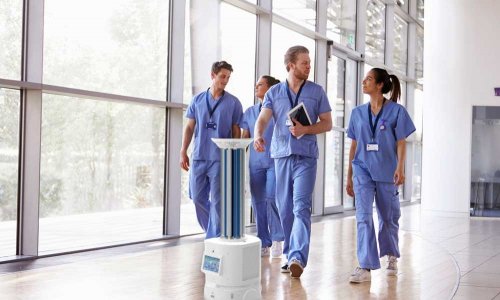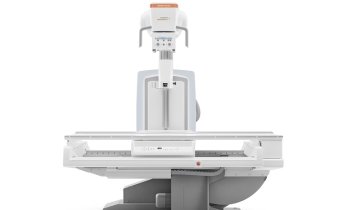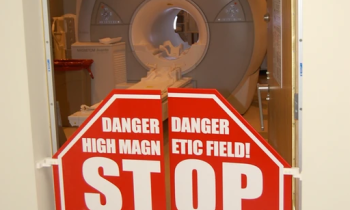Hygiene: Back to basics
Two statements from publications by Dr Stephanie Dancer, Department of Microbiology, Hairmyres Hospital, East Kilbride (UK) prompted Ralf Mateblowski to interview Professor Markus Dettenkofer, Acting Director of the Institute for Environmental Medicine and Hospital Hygiene, Freiburg University Medical Centre about environmental and infection control

In 2009 Dr Dancer stated: ‘We simply don’t know how to clean our hospitals in order to create the safest environment for patient care.’
‘The situation is indeed still difficult,’ Prof. Markus Dettenkofer commented. ‘Who has actually been interested in relevant clinical studies on cleaning and infection control in hospitals? There was a lack of lobbying and financial opportunities such as those available for studies into antibiotics. There was also a lack of randomised and multi-centric approaches. However, the situation is improving: There are now current studies, especially in the USA, and also by Stephanie Dancer – an encouraging development.’
In 2011 she said: ‘Comprehensive cleaning is also easier to implement than persuading busy staff to wash their hands or by reducing empirical antimicrobial use.’
‘Hand hygiene is not given enough importance. In that respect, I find Stephanie Dancer’s statement a little too provocative. Hand hygiene is the most important part of the entire process! No allowances should be made in this respect, with focus only on surface disinfection. No. Hand hygiene is and will remain number one. Antibiotics stewardship is also of the greatest importance, because effective cleaning and disinfection management alone is not enough, without strict antibiotics control and comprehensive antibiotics management.
Will classic cleaning with detergents, the basic prerequisite for successful disinfection, fall into oblivion?
‘This may be the case in some hospitals, especially when there is a lot of financial pressure. However, in Freiburg we have – and I say this with pride – never forgotten about cleaning! Prof. Daschner spoke out against undirected surface disinfection in favour of proper cleaning early on. We employ our own cleaning team – a rarity, as most hospitals outsource cleaning to external companies, which often results in significant problems with quality. We don’t experience these problems with our in-house staff. Fluorescence markers, for instance, are suitable for simple quality control. Located in critical positions, they will remain in place after insufficient cleaning and become visible under UV lighting.
‘Floors and walls are not critical surfaces – these types of surfaces are in fact hardly ever the sources of nosocomial infections – but objects and surfaces with frequent hand contact are – and here there are repeated, large shortcomings in the daily cleaning process.’
That’s despite the fact that Germany is the ‘world champion’ in setting out guidelines. Are we good theorists but bad practitioners, and therefore third-class in our MRSA ranking?
‘That’s only part of the explanation; the somewhat modest performance also can be put down to modern medical routines. One advantage is that we hardly have any waiting lists here. Admittedly, there are weaknesses in our high performance medicine when you go into details. Compared to the Netherlands or Scandinavia, our infection control is still not good enough. Over the last few decades we’ve expanded capacities in surgery, intensive care etc. but have frequently forgotten that controlling the spread of resistance particularly depends on the details.
‘We are at a critical point in Germany: Specialists as well as the general public are aware that we must carry out consistent infection prevention and control in our modern medicine. But this has its price and involves hard, interdisciplinary work. It’s not simply a case of the respective hospital departments for infection prevention and control organising everything, compiling standards and then everything happening of its own accord… to the contrary. It will continue to be intensive, detailed work in daily clinical practice, without a cure-all, such as the miracle antibiotics we used to dream about. ‘The significant differences between individual European countries are a challenge for us. My urgent appeal: We have to learn from one another!’
Profile:
Professor Markus Dettenkofer MD, head of the Section for Hospital Infection Prevention and Control at the Institute for Environmental Medicine and Hospital Hygiene, Freiburg University Hospital since 2008, is currently Acting Director of the Institute. A specialist in Infection Prevention and Control and Environmental Medicine, he began his career as a scientific assistant in 1993. His personal commitment and 20-year experience benefit national specialist associations such as the Future Hygiene Network (NZH) and German Society for Infectiology (DGI) as well as international organisations such as the European Society for Clinical Microbiology and Infectious Diseases (ESCMID).
26.08.2013









